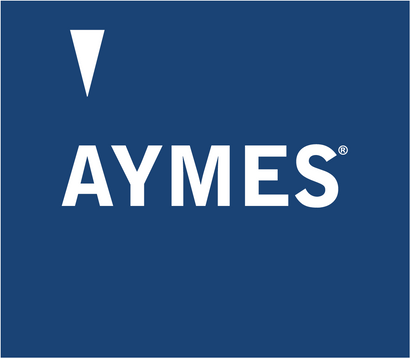Cancer immunotherapy or immune-oncology (IO) is the fourth pillar in cancer treatment which can be used alone or in combination with surgery, radiotherapy, or chemotherapy1. There are several different types of immunotherapeutic strategies that are currently being used, immune checkpoint inhibitors (CIs), immuno-cytokines, monoclonal antibodies (MABs), adoptive cell transfer (ACT)) and cancer vaccines1.
What is the difference between the types of immunotherapy treatment?
Cancer immunotherapies have various modes of action. They can work ‘passively’ by introducing antibodies, cytokines, or transformed immune cells which then act on the cancer cells1 or can act directly on cancer cells or the immune system as targeted therapies or biological therapies2. Monoclonal antibodies (MABs) are an example of this; these treatments act on a specific target in cancer cells so the immune system will recognise and destroy it. Examples of MABs medications are below:
Monoclonal antibodies (MABs) types of medications
- Rituximab (Mabthera) used for chronic lymphocytic leukaemia (CLL) and some types of non-Hodgkin lymphoma (NHL)
- Alemtuzumab (Campath) used for chronic lymphocytic leukaemia (CLL)
- Cetuximab (Erbitux) - a treatment for advanced bowel cancer and head and neck cancer
- Trastuzumab (Herceptin) - used to treat breast and stomach cancer
Checkpoint inhibitors (CI) and adoptive cell transfer (ACT) are two types of immunotherapy that may be of particular interest as patients on these treatment pathways may require dietetic input.
Checkpoint inhibitors (CI)
Checkpoint inhibitors (CIs) are an interesting group of medications that have been developed to block immune checkpoints in the body. Immune checkpoints are part of the immune system and act as a ‘break’ to stop the immune system from overreacting to prevent healthy cells from being destroyed3.
Checkpoint inhibitor proteins, found on some tumour cells, can bind to the checkpoints to allow the ‘breaks’ to be applied to the immune response. The immunotherapy checkpoint inhibitors are used to block these proteins from binding so the body’s natural immune system is activated to create a greater response to the cancer cells3.
Examples of checkpoint inhibitors:
- Ipilimumab for advanced melanoma and renal cell cancer (blocks the CTLA-4 CI)
- Nivolumab and Pembrolizumab for melanoma, Hodgkin’s lymphoma, and non-small cell lung cancer (blocks the PD-1 CI)
- Atezolizumab for lung cancer, some breast, liver & urinary cancers*
- Avelumab for Merkel cancer carcinoma (MCC), urinary tract cancers*
- Durvalumab for non-small cell lung cancer*
- (* all these medications block the PD-L1 CI)
Adoptive Cell Transfer (ACT)
This is a growing area of cancer immunotherapy and works differently from other therapies as it involves the removal of the patient’s or donor’s immune cells which are then modified in a laboratory and reinfused back into the patient4.
A type of adoptive cell transfer you may have heard of is chimeric antigen receptor or CAR-T cell therapy. This involves modifying the patient’s T cells so they become CAR-T cells which can recognise and destroy cancer cells5. In the UK, NICE has approved CAR-T for refractory B-cell acute lymphoblastic leukaemia (ALL) in patients up to 25 years old6. In adults, CAR-T is approved for relapsed or refractory diffuse large B cell lymphoma (DLBCL) after 2 more systemic therapies6.
Side-effects of treatment
Cancer immunotherapies can cause a range of side-effects just like the other forms of anti-cancer treatment.
A class of medication where side-effects are commonly observed is checkpoint inhibitors. As the mode of action is to deliberately overstimulate the immune function, it can cause a range of inflammatory and immune-related side effects called ‘immune-related adverse reactions/events’7. The side effects can be unpredictable and occur at different stages of treatment; immediately or sometimes several months after treatment7. Most reactions do occur during treatment and are reversible and managed with treatment breaks, administration of corticosteroids, and/or supportive care7.
The most frequent side-effects reported are related to the gastrointestinal tract, with diarrhoea occurring in 27-54% of patients treated with Ipilmumab7. Ipilmumab is used to treat advanced melanoma (and also renal cell cancer) patients which are not typically seen by dietitians, so may present a new area for involvement within the MDT. In most other checkpoint inhibitor medications, approximately one-third of patient experience diarrhoea, and 8-22% experienced colitis. Other side effects which have a nutrition impact are reduced appetite, nausea, vomiting, oral mucositis, stomatitis, and gastritis7.
Patients prescribed multiple immunotherapy agents may also have increased risks of toxicity. For example, patients with metastatic melanoma treated with dual therapy e.g. Ipilmumab and nivolumab were reported to have a 56% incidence of diarrhoea/colitis7. In patients with lung cancer treated with the same drug, 13% reported reduced appetite and, 10% experienced nausea7.
Dietetic management
Dietetic management of patients receiving immunotherapy depends on the treatment they are receiving and the possible side-effects of these treatments. As described above gastrointestinal tract side-effects particularly, diarrhoea, is very common. These patients may require hospital admission for management and may require nutrition support including artificial nutrition.
Patients may also require support with a range of side-effects7 such as:
- Weight-loss
- Nausea and vomiting
- Oral mucositis
- Stomatitis
- Gastritis
These side-effects will increase the risk of weight loss, malnutrition, and cancer cachexia which will also require a range of nutrition support interventions and dietetic counselling.
Checkpoint inhibitors can also increase the risk of endocrine complications such as hypophysis’s (disorders of the pituitary gland), thyroid dysfunction, diabetes mellitus8. New-onset diabetes can occur which mimics Type 1 diabetes and thus would require dietetic counselling and support. This could occur on the background of nutrition impact symptoms thus may require quite complex dietetic management.
Research has been exploring whether specific dietary components can increase tolerance to checkpoint inhibitor medications and improve the efficacy of cancer treatment9. Three diets (ketogenic diets, protein-restrictive diets, and high fibre diets) and two vitamins (ascorbic acid and vitamin B6 have been proposed to enhance the action of checkpoint inhibitors9. However, this research is from animal and in vitro studies so would need further human studies before it can be recommended in clinical practice.
Summary
The ongoing development of immunotherapy treatments will inevitably expand the field of treatment for different cancer types, presenting dietitians with new opportunities to work with different types of cancer patients. The importance of dietetic support for these patients should be highlighted within the MDT, so that when new treatments are being introduced funding for dietetic care should be included.
Further guidance and useful links
Cancer Research UK: Immunotherapy and its side-effects https://www.cancerresearchuk.org/health-professional/treatment-and-other-post-diagnosis-issues/immunotherapy-and-its-side-effects#immunotherapyaccordion0
ESMO Clinical Practice Guideline – Management of Toxicities from Immunotherapy: https://www.esmo.org/guidelines/guidelines-by-topic/supportive-and-palliative-care/toxicities-from-immunotherapy
Author Bio:
Joanna Injore is a registered Dietitian with over 19 years of experience in the NHS, charity and private sector. She currently works at Macmillan Cancer Support and is the owner of JI Nutrition, a private practice providing specialist support to cancer patients during and after treatment. Joanna also provides consultancy services to brands.
You can connect with Joanna online
Profile photo

- ◄References:
-
- Front. Immunol, 16.04.2021. Volume 12 – 2021. Zhang Zheying, Lu Manman, Qin Yu, Gao Wuji, Tao Li, Su Wei, Zhong Jiateng. A New Breakthrough in Tumor Immunotherapy. Available at: https://www.frontiersin.org/articles/10.3389/fimmu.2021.672356/full. Accessed 24.02.2023
- Cancer Research UK. Types of cancer immunotherapy. Available at: https://www.cancerresearchuk.org/about-cancer/treatment/immunotherapy/types. Accessed 24.02.2023
- Cancer Research UK. Checkpoint inhibitors. Available at: https://www.cancerresearchuk.org/about-cancer/treatment/immunotherapy/types/checkpoint-inhibitors. Accessed 24.02.2023
- Journal for ImmunoTherapy of Cancer 2021;9. Kirtane K, Elmariah H, Chung CH, et al. Adoptive cellular therapy in solid tumor malignancies: review of the literature and challenges ahead. Available at: https://jitc.bmj.com/content/9/7/e002723. Accessed 24.02.2023
- Cancer Research UK. CAR T-cell therapy. Available at: https://www.cancerresearchuk.org/about-cancer/treatment/immunotherapy/types/CAR-T-cell-therapy. Accessed 20.01.2023. Accessed 24.02.2023
- CAR-T Therapy. Available at: https://www.england.nhs.uk/cancer/cdf/car-t-therapy/. Accessed 24.02.2023
- Clinical Nutrition ESPEN, Volume 47, 2022. D.M.K. Homan, P. Ruissen-Luijt, A. Boekhout, J.M. Maaskant. Historic cohort study of nutritional status related side effects and weight loss of cancer patients treated with immunotherapy. Available at: https://www.sciencedirect.com/science/article/abs/pii/S2405457721011700#preview-section-abstract. Accessed 24.02.2023
- Expert Opinion on Drug Safety, 2022. Vol 21, No 11, 1337-1339. Theocharis Koufakis, Bojan Kovacevic, Manfredi Rizzo & Nikolaos Papanas (2022) Immune checkpoint inhibitors-induced diabetes mellitus: a growing clinical presentation requiring our attention. Available at: https://www.tandfonline.com/doi/full/10.1080/14740338.2022.2134343. Accessed 24.02.2023
- Life (Basel). 2022 Mar 11;12(3):409. Zhang X, Li H, Lv X, Hu L, Li W, Zi M, He Y. Impact of Diets on Response to Immune Checkpoint Inhibitors (ICIs) Therapy against Tumors. Available at: https://www.ncbi.nlm.nih.gov/pmc/articles/PMC8951256/. Accessed 24.02.2023



